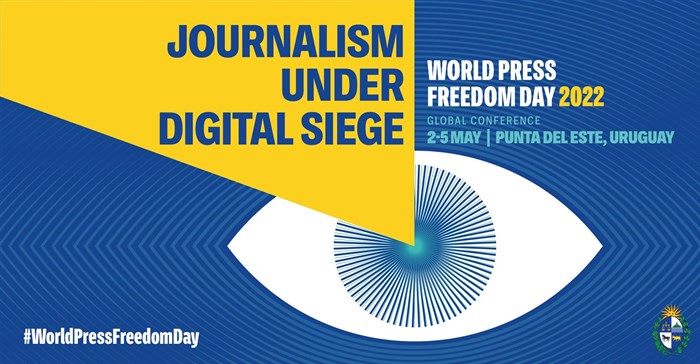
Not only does humanity teeter at the edge of a third world war, but it is also trapped in single stories about this conflict that are diametrically opposed to one another. The one story supports Ukraine and the Western World and the other Russia and its allies.
The truth lies somewhere in between. It is the role of journalism to provide all the information that can help the public formulate a considered view of the present conflict. Instead, one gets a very different view depending which news channel you tune into.
This unnecessary and tragic war started soon after the tapering of the Covid-19 pandemic. For two years, tragic news about Covid deaths have hogged television screens and newspaper headlines.
No sooner was this nearing an end when Russia attacked Ukraine and a fresh set of disturbing visuals and information were fed into already bludgeoned public minds.
Research is emerging that the coverage over the last few years have increasingly displayed negative news fatigue indicating an erosion of public trust in both the politicians and the news media.
How politicians are going to navigate this challenge is up to them. The declining public trust in journalism however is something that journalists and the industry will have to interrogate and find a way forward to a healthier relationship with the public.
In May 2020, the Reuters Institute for the Study of Journalism at Oxford University examined the “infodemically vulnerable” in Britain, those who chose to reduce consumption of Covid-19 related news.
Writing about this in the Athens Journal of Mass Media and Communications (Volume 8, Issue 3, July 2022, Canadian academic, Neill Fitzpatrick recorded that more than one-fifth of those surveyed said they often or always actively try to avoid the news, with the majority citing the impact on their mood.
“While not a new phenomenon, the scepticism surrounding journalism was exacerbated during the pandemic as anti-vaccination advocates and conspiracy theorists questioned the validity and accuracy of the Covid-19 facts shared by news organisations, even governments,” he said.
“While mental health concerns appear to be the primary reason behind the increase in avoidance, growing distrust in mainstream media is also cited.”
In May 2021, a Google search for the term Covid-19 news yielded more than 25.2 billion results.
Fitzpatrick quoted researchers who found that the majority of these stories share common factors such as negative headlines and grim statistics about Covid-19‘s death toll as well as its impact on families, businesses, and health care workers.
Taken together with the extensive coverage of Trump and Brexit in the Western World, it was enough for news consumers to tune out, he said.
By 2019, the Reuters Institute for the Study of Journalism‘s annual Digital News Report found 32% of those surveyed worldwide said they actively avoid the news, with avoidance highest in Croatia (56%), Turkey (55%), and Greece (54%).
His paper does not factor in the war in Europe currently but cites research that the Trump, Brexit and Covid-19 news cycle left consumers feeling worse emotionally.
“It is clear both the consumers of news and those who produce it are frustrated with the current environment, but it is the journalists and news organizations that have the most to lose if nothing changes,” he said.
Acutely aware of the challenges facing the profession, Rhodes University School of Journalism and Media Studies (JMS) has dedicated the month of May to interrogate the state of journalism in Africa.
This is part of its year-long celebration of the 50th Anniversary of the school.
It will kick off the discussions on 5 May when the school in partnership with the multimedia website, The Journalist and the South African weekly newspaper, the Mail and Guardian will host a panel discussion entitled Reclaiming African Journalism in the Public Interest.
The JMS webinar will bring together speakers such as Professor Guy Berger, Unesco’s director of Freedom of Expression and media development, Jovial Rantao, current chairperson of The All Africa Editor’s Forum and editor of The African Mirror, Lydia Namubiro, news editor of The Continent, a special project of the Mail and Guardian and Kavita Chandran, Singapore-based journalist and media trainer.
Facilitating the discussion will be JMS”s Taryn Isaacs De Vega.
Register for the event here.
The webinar takes place on the last day of UNESCO’s annual World Press Freedom Day Global Conference that takes place from 2 to 5 May, 2022 in Punta del Este, Uruguay.
Read the full article at The Journalist